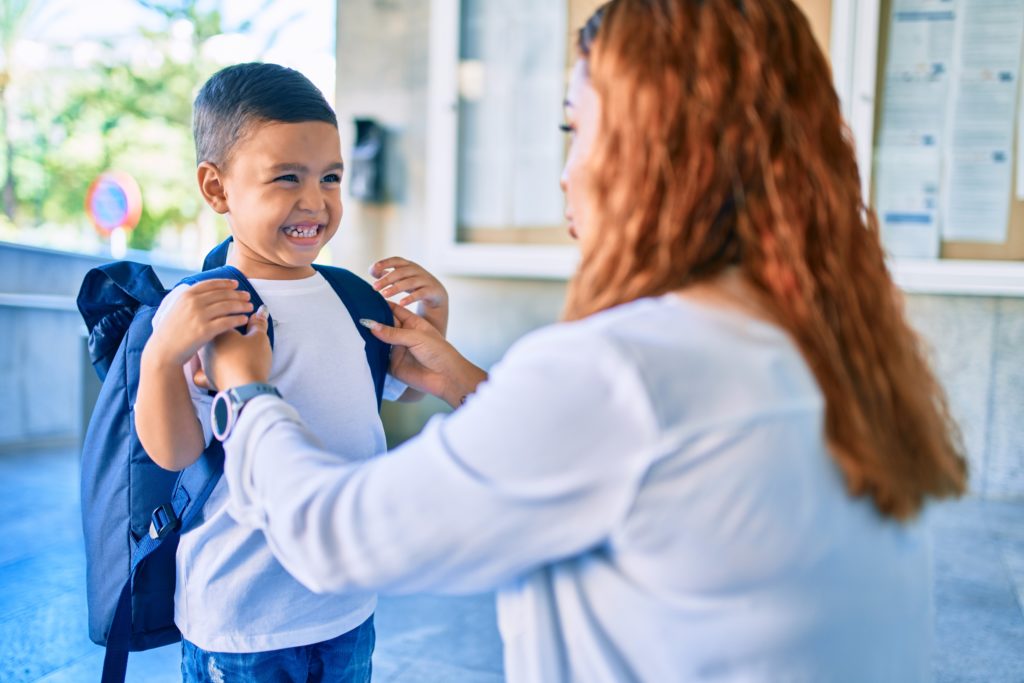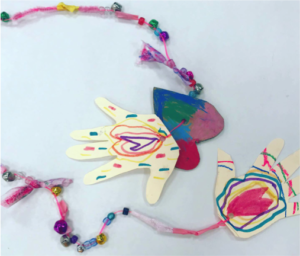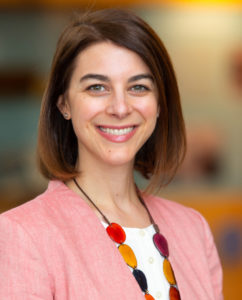Wild Wonders | Saturday, April 27

Wild Wonders | Saturday, April 27

By Katie Gullone, DCM’s Sr. Manager of Early Learning & Family Engagement
As the summer days begin to fade, the excitement and joy of starting the new school year is right around the corner! While I prepare myself for this new season in life, it is a gentle reminder that many children all over the country are also preparing for a lot of new transitions. Transitions or “situations in which children experience new activities or environments” can create many feelings, such as happiness, worry, and sometimes confusion.

Even positive changes can be overwhelming at times…both for adults and young children. That is OK! And, a very natural part of the process of transitioning back to school. Adults can support a smooth transition back into the classroom by being responsive in their everyday interactions. You can never underestimate the power of a comforting hug or a warm smile. These simple moments build resilience and strengthen a child’s emotional skills.
Here are some things that adults can do to help prepare children for transitioning back-to-school:
Establish new routines and rituals
Children thrive in environments where they know what to expect next. Try creating a goodbye routine with children to ease the transition from the home into the classroom. This might be a hug, play with a favorite toy, or sing a song together. Children may also benefit from having a visual schedule to help ease transitions.
(For some more tips and ideas for creating routines, check out the Daniel Tiger’s Day & Night Mobile App available here: https://pbskids.org/apps/daniel-tigers-day–night.html.)

Create opportunities for children to express their feelings
Encourage children to ask questions and share their emotions about transitioning to school. Art making is a wonderful way for children to be creative and process their feelings! Create an Art Hug together as a reminder of the special bond between children and the adults important to their lives. https://dupagechildrens.org/art-hugs/
Read books about going to school
Check out your local library’s selection of books on transitioning back to school or order one of these books selected by early childhood experts: Suggested Children’s Books to Support Transition: https://louisville.edu/education/kyautismtraining/past-events/files/webinars/2012/Children%20Books%20Related%20to%20Transition.pdf
Build a relationship with teachers
Staying “connected” with the child care or school community is a great way to build the home-school relationship. Ask about the school’s family communication plan. Do the teachers send messages during the day in the form of an email, text message, or secure website? Finding ways to stay in touch helps children and the adults important to their lives.
For more information about transitioning back to school, please visit the National Association for the Education of Young Children’s Blog Post:
https://www.naeyc.org/our-work/families/is-school-ready-for-kindergartner
https://www.naeyc.org/our-work/families/help-children-say-goodbye
About Katie

Katie Gullone serves as the new Senior Manager, Early Learning and Family Engagement at DuPage Children’s Museum. In her previous work, Katie managed early childhood grant-supported programs in partnership with Carnegie Mellon University’s CREATE Lab, Pittsburgh AEYC and the Fred Rogers Center for Early Learning and Children’s Media. Additionally, Katie serves as Adjunct Faculty for Carlow University and specializes in child development theory, play, media literacy, and STEM. She holds a Master of Education in Early Childhood Education with teaching licensure from Carlow University and a Bachelor of Arts in Interpersonal Communication from Meredith College.
“I am thrilled to be a part of the DCM community where children’s play, self-discovery, and creativity are valued and all caregivers, educators, and families are embraced. It is a joy to work in an environment that aligns with my philosophy of play and approach to working with children and families.”

